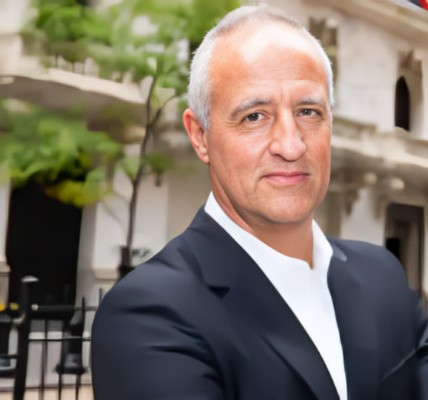In the world of electric vehicles (EVs), the name Wang Chuanfu may not immediately ring a bell like Elon Musk’s, but his impact on the industry is profound and increasingly undeniable. As the founder and guiding force behind BYD (Build Your Dreams), Wang Chuanfu has not only revolutionized the Chinese automotive landscape but has also positioned BYD as a formidable global competitor in the EV market.

Early Life and Education
Born in February 1966 in Wuwei, Anhui province, China, Wang Chuanfu’s childhood was marked by adversity. His parents passed away while he was young, leaving him to be raised by his older siblings in challenging circumstances. Despite financial hardship, Wang displayed early academic promise. His path to higher education was paved with determination and support from his older brother, who sacrificed his own opportunities to ensure Wang could pursue his studies.
After completing high school, Wang enrolled at Central South University of Technology, where he studied chemistry—a pivotal choice that would later shape his entrepreneurial journey. His academic pursuits provided him with a solid foundation in scientific principles and critical thinking, essential skills for his future endeavors.
Entrepreneurial Beginnings: From Academia to Industry
Wang’s career began in academia, where he engaged in battery research at the Beijing General Research Institute of Nonferrous Metals. This early experience laid the groundwork for his understanding of battery technology—an area that would define his entrepreneurial path.
In 1993, amid China’s economic reforms and the establishment of Special Economic Zones (SEZs), Wang seized an opportunity in Shenzhen, a hub for entrepreneurial activity. Joining a joint venture focused on battery production, Wang quickly recognized the potential for innovation and growth in the sector. However, internal challenges within the venture prompted Wang to chart his own course.
Founding BYD: Building a Dream
In 1995, with a modest loan and a vision to disrupt the global battery market, Wang founded BYD in Shenzhen. The company’s name, an acronym for “Build Your Dreams,” encapsulated Wang’s ambitious goals and determination to create something transformative. Initially focused on rechargeable batteries, BYD distinguished itself through a combination of innovative technology and cost-effective manufacturing processes.
Pioneering Battery Technology
One of BYD’s early breakthroughs was its approach to battery manufacturing. While global competitors relied on expensive automated processes, Wang innovated by employing manual labor—a significantly cheaper alternative in China at the time. This approach enabled BYD to produce batteries more affordably while maintaining competitive quality standards.
By the early 2000s, BYD had emerged as a global leader in battery technology, supplying components to major electronics manufacturers worldwide. This success attracted the attention of investors, including Warren Buffett, whose investment in BYD in 2008 signaled a new phase of growth and recognition for the company.
The Shift to Electric Vehicles
Wang’s strategic vision extended beyond batteries. In 2003, BYD made a pivotal move into the automotive industry by acquiring Qichuan Motors, a struggling local car manufacturer. Despite initial skepticism from investors and industry experts, Wang saw an opportunity to leverage BYD’s battery expertise in the burgeoning electric vehicle market.
Under Wang’s leadership, BYD embarked on a journey to develop and produce electric vehicles—a decision that would ultimately reshape the company’s trajectory and global impact. The early models, although modest in design and performance compared to established brands, laid the foundation for BYD’s future innovations in sustainable transportation.
Overcoming Challenges: From Crisis to Innovation
BYD faced significant challenges along the way, including the 2009 “Dealership Exodus Gate” crisis, where a misguided sales strategy led to widespread dealership rejection and financial setbacks. However, Wang’s resilience and commitment to innovation enabled BYD to pivot towards electric vehicles more aggressively.
One of BYD’s most significant innovations came in the form of the Blade Battery—a revolutionary design that addressed safety concerns and enhanced energy density in electric vehicles. Wang’s background in chemistry played a crucial role in developing this technology, which not only propelled BYD’s EV capabilities but also influenced industry standards globally.
Global Expansion and Recognition
Today, BYD stands as a testament to Wang Chuanfu’s entrepreneurial spirit and vision. With a diverse portfolio encompassing electric buses, trucks, and passenger vehicles, BYD has expanded its presence beyond China to international markets, including Europe and Latin America. The company’s strategic partnerships and collaborations underscore its commitment to sustainable mobility and innovation.
Legacy and Future Prospects
As BYD continues to grow under Wang’s leadership, the company faces new challenges, including geopolitical tensions and intensified competition in the global EV market. Wang remains dedicated to advancing BYD’s technology and expanding its market reach while maintaining a strong focus on quality and environmental sustainability.
Wang Chuanfu’s journey from a humble upbringing to the helm of a global automotive powerhouse is a testament to perseverance, innovation, and the transformative power of entrepreneurship. His impact on the electric vehicle industry and sustainable transportation underscores the importance of visionary leadership in shaping a cleaner, more sustainable future.
Conclusion
In conclusion, Wang Chuanfu’s story is not just one of business success but also of personal triumph over adversity. His relentless pursuit of innovation and commitment to environmental sustainability has positioned BYD as a leader in the global transition to electric vehicles. As the world continues to embrace cleaner energy solutions, Wang’s legacy as a pioneer in electric mobility will undoubtedly leave a lasting impact on generations to come.





